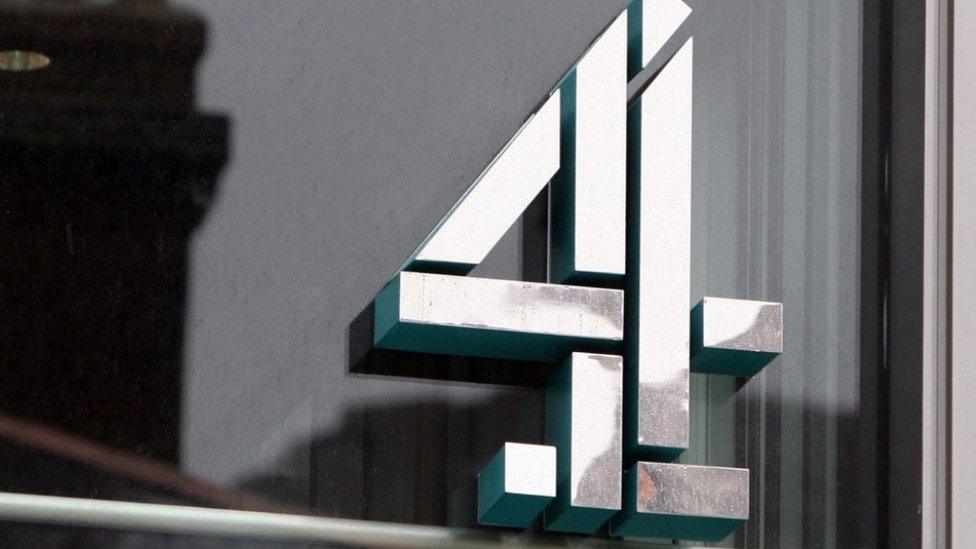Kerrang TV: How a channel shaped the alternative music scene
- Published
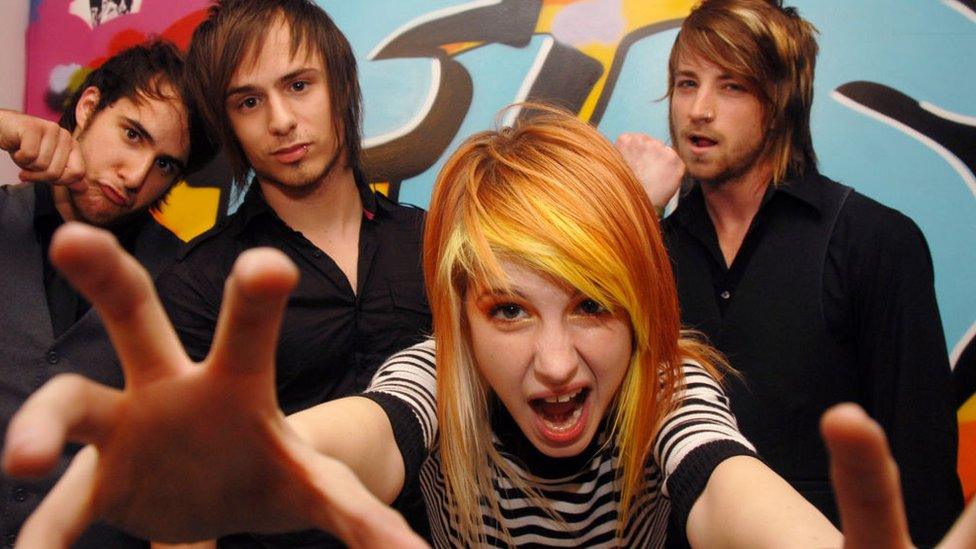
Paramore were championed by Kerrang, with Misery Business a fixture of the channel
"It was the highlight of lunchtimes to go back to my mate's house and huddle round the TV, watch new bands, hear new exciting music and be inspired."
Enter Shikari frontman Rou Reynolds says rock TV station Kerrang "was important" to him even before forming the band.
For more than 20 years, the channel has nurtured and promoted alternative music, introducing new fans to the scene and indulging old ones with iconic throwbacks.
Launched in 2001, Kerrang's dedication to nu-metal and indie rock beamed the likes of Paramore, Fall Out Boy and Panic! At The Disco not just to screens, but to hearts and minds.
That's now at risk after Kerrang TV's parent company, Channel 4, announced a restructure to make savings which proposes axing the channel.
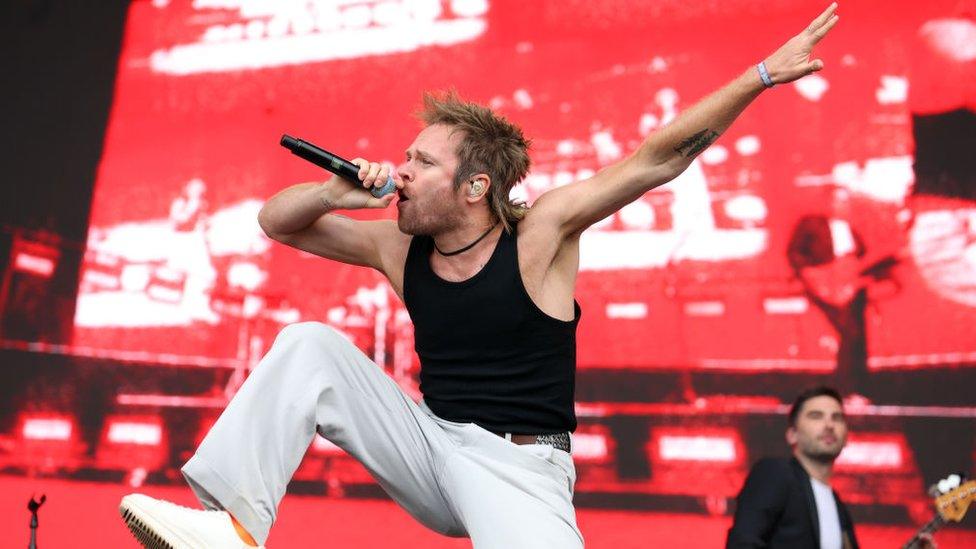
Rou Reynolds says Kerrang was important in helping Enter Shikari reach new fans
Rou says he's got no doubt the bands he saw on Kerrang inspired Enter Shikari's sound.
"Then when I formed Enter Shikari and the first few years of our first album and everything, Kerrang was completely supportive," he says.
"It offered us a place where people could see our music videos, where people could see interviews - they were a great resource for bands starting out."
Sam Carter, lead singer of Architects, tells Newsbeat the channel was "a staple of my childhood".
"I spent so many hours watching it and when I finally saw our videos on there it was such an awesome moment.
"I feel like it was a really important place as a gateway into heavy and alternative music."

Architects frontman Sam Carter says "it's really sad to see that Kerrang TV will no longer be on TV"
But Channel 4 says what Kerrang offers, as well as sister stations Kiss and Magic which also face the chop, has increasingly been replaced by social media and would soon be unprofitable.
A spokesperson for the broadcaster says the channels "no longer deliver revenues or public value at scale" and that its new strategy was to focus on its digital outlets.
Kerrang became the last refuge for rock fans after Scuzz TV, which tended to feature lesser-known bands, came off air in 2018.
And if you were a metal fan flicking through channels, chances are you'd skip by Kiss where you'd hear more mainstream dance, hip-hop and R&B.
'Making space for bands to grow'
DJ Alyx Holcombe feels Kerrang has been "the place and the hub for alternative people".
"Its connection to the rock scene was absolutely unrivalled," the BBC Radio 1 Indie Show and Introducing Rock presenter says.
Alyx also has a weekday show on Kerrang Radio but she still has a special place in her heart for the TV channel.
"I just remember Kerrang TV being on all day, every day, watching my favourite bands in the world and just being like 'when I grow up, I want to be like that'."
While she accepts Channel 4's point about changing audience habits meaning fewer people are watching music videos on TV, Alyx thinks sometimes social media algorithms leave bands failing to reach new fans.
"There is something else deciding where your content hits and where it goes," she says.
"And that algorithm can change at any point. Then it's damaging to musicians as well because they're probably thinking, what are we doing wrong?"
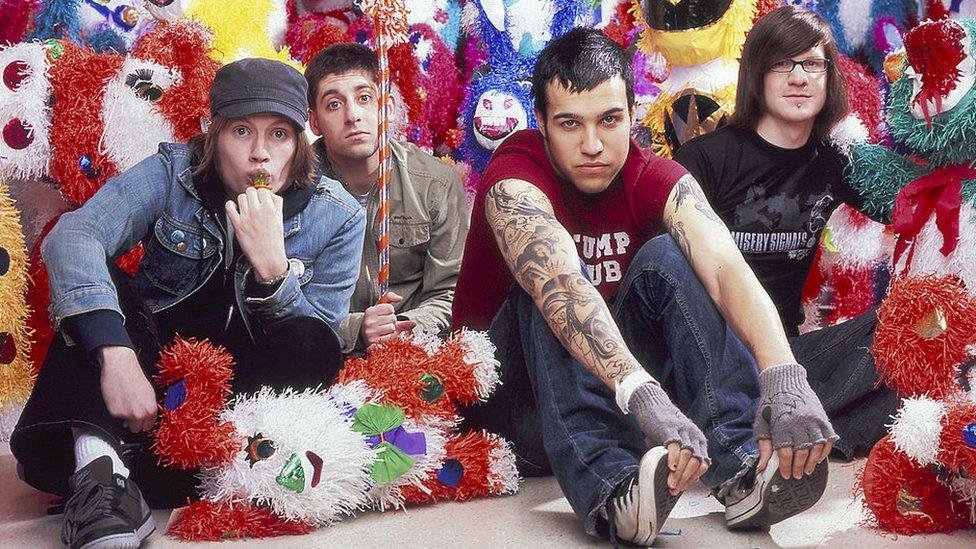
Fall Out Boy were also regulars on Kerrang TV
Enter Shikari has used TikTok as a way to go behind the scenes with their music and videos, talking fans through their choices and processes.
While it's a new way to connect with fans, Rou acknowledges it's very "self-directed" - which isn't always a good thing.
"Whereas if you're doing an interview on a music channel then you're not completely in charge, it can go off in different directions, and people can see the real person."
Sam recognises that increasingly fans are finding music videos on social media.
"But I will remember fondly seeing some of my fave bands videos for the first time on Kerrang," he says.
Alyx and Rou don't think TikTok offers the same sustained exposure to bands as Kerrang.
"What places like Kerrang TV do is all the hard work for you," says Rou.
"You're more than likely to be introduced to music that you're going to be excited by if you're into alternative music or rock music."
And "even though it kind of sucks", Alyx feels it's important to focus on the positives for the future.
"There are going to be other ways that people can consume that content," she says.
"It's just about people with voices in the scene making enough space for these bands to grow and then finding a path of how to push them on."


Related topics
- Published1 February 2024
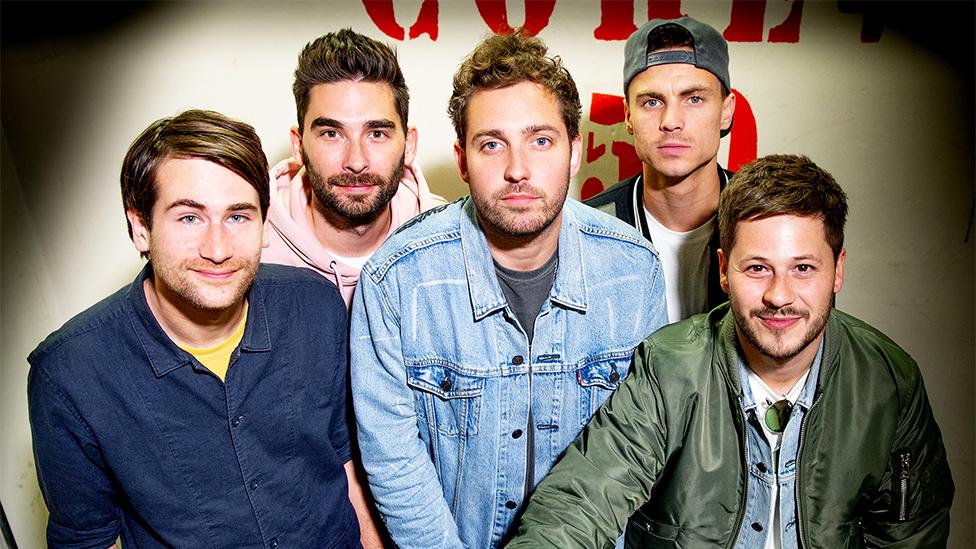
- Published29 January 2024
